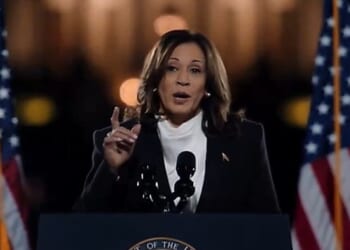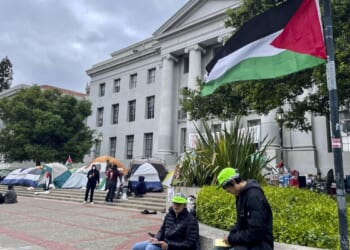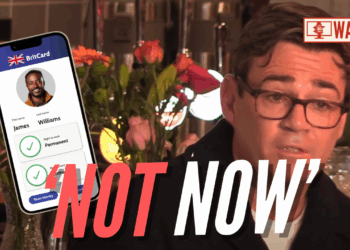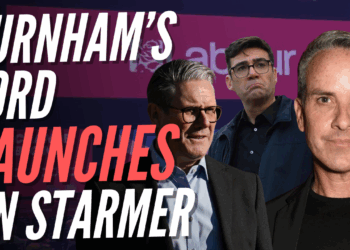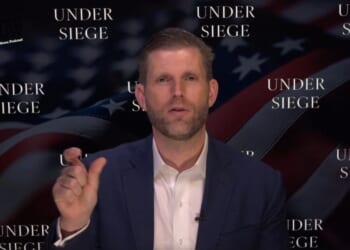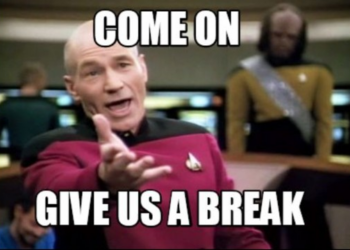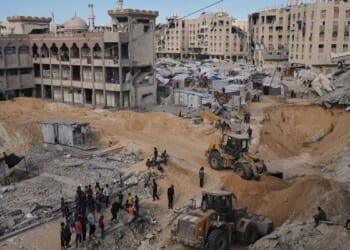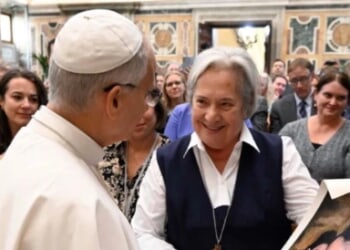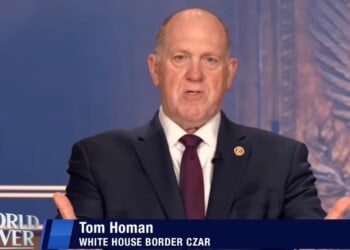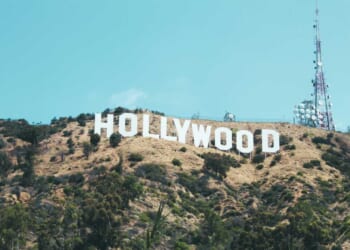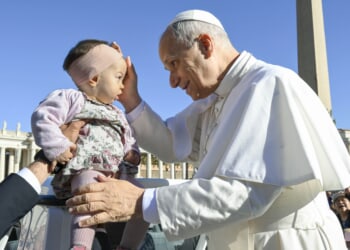According to the White House, President Donald Trump urged Chinese President Xi Jin Ping at the APEC summit for the release of Jimmy Lai, the Hong Kong media mogul imprisoned for his pro-democracy advocacy and languishing in solitary confinement. In late October, Italy’s Foreign Minister, after meeting with Lai’s son, Sebastien Lai, joined the U.S. in demanding Lai’s release.
Unsurprisingly, Meloni’s government, a stout defender of Catholic ethics, recently joined the U.S. in demanding Xi to put an end to Lai’s suffering.
This reality must have disoriented the critics of Trump and Meloni, who have spent years denouncing them for their “hateful” policies and blatant disregard for human rights. In fact, the two vilified governments’ public stance on Lai, which is far stronger and more principled than that of many Western democracies, aligns closely with their economic policies and humanistic worldviews, as well as their rejection of rigid left-wing ideologies which unfortunately have held sway in much of the Western world.
In August 2019, news sources and satellite photos indicated that the Chinese government was ready to send its troops to Hong Kong to suppress its unprecedented city-wide pro-democracy protests. Seeing some protesters’ appeal to the U.S. government for help, President Trump warned Xi against carrying out a Tiananmen Square-style crackdown in the city, as it would derail the trade talks between the countries. Tiananmen 2.0 did not happen, despite Beijing’s imposition of the National Security Law, mass incarceration, and a mass exodus of dissidents from the city. Trump credited himself for preventing what would have been a much worse disaster: “If it weren’t for me, Hong Kong would have been obliterated in 14 minutes.” Skeptics dismissed his statement as both unfounded and typical of his boastful character.
When news emerged that Trump had fulfilled his promise to raise Lai’s case with Xi at the APEC summit — and that Lai’s son now sees a likely path to his release — some began to find credibility in Trump’s earlier claim of preventing a Tiananmen 2.0.
At both times, Trump’s action was likely motivated by both economic and humanitarian concerns. In the latter case, Lai’s release would reignite some faith in business investors, help stabilize the international hub, and benefit its trading partner. It is also worth noting that Lai (78), who was friendly to — though not a staunch defender of —Trump in his editorial stance in his now-defunct tabloid Apple Daily, shares certain similarities with the President. They are about the same age. Like the President, Lai had his flaws and redeeming — even endearing — qualities: he came cross as arrogant, profit-driven, and even a little ruthless in his younger days, after he escaped from Mainland China and settled in the former British colony. Yet his growing humility, tremendous gratitude to the city that allowed him to prosper, and unflinching courage during the city’s democratic uprising transformed him into an icon of liberty for many.
Lai became a devout Catholic in his later years. Reports indicated that his Catholic faith and Bible reading have sustained him in prison. Unsurprisingly, Meloni’s government, a stout defender of Catholic ethics, recently joined the U.S. in demanding Xi to put an end to Lai’s suffering.
To be fair, demanding Lai’s release by no means interferes with China’s or Hong Kong’s politics or judicial independence, but rather demonstrates compassion for an aged man whose health has faltered in prison. In fact, even some pro-establishment politicians and critics in Hong Kong have shown sympathy for Lai, whom they deem to have paid a heavy price for his activities and could do no harm being released and reunited with his loved ones. Assuming what Lai did was truly wrong, he, as well as people in his camp, has learned the limits of legality under the city’s National Security Law through a harsh lesson.
His release would benefit him and society more generally as it would reassure pro-democracy activists that the government still cares about them as individuals while maintaining its sovereignty, economic prosperity, and reputation on the world stage. If, on the other hand, Lai dies in prison, it would turn him into a martyr and make Hong Kong and China look very bad.
Other Western democracies have been considerably hesitant in their demand for Lai’s release, in stark contrast to the strong stances taken by Trump or even the Meloni government. The European Union, the United Kingdom, and Canada paid mere lip service after persistent lobbying by activist groups. In addition, none of the governments of the United Kingdom, of which Lai is a citizen, has made his release the center of any discussions with China. Likewise, neither the previous nor the current Prime Minister of Canada took up this issue in their meetings with Xi. Even the Vatican had been silent.
Yet these Western democracies showed little hesitance in recognizing Palestine as a sovereign state despite all the atrocities committed by Hamas, the terrorist rulers in the Gaza Strip. The Vatican recognized Palestinian statehood a decade ago. Uncoincidentally, both Trump and Meloni acted with principle and moral clarity: the former warned Hamas against further cruel acts and mocked those countries for “rewarding” Hamas by recognizing Palestinian statehood; the latter claimed that its recognition of Palestinian state would be conditional on the release of all Israeli hostages and exclusion of Hamas from any future government role in Palestine.
On the contrary, the stark contrast between the Western democracies — and the Vatican — toward Lai, a nonviolent dissident exercising free speech, and toward a terrorist regime responsible solely for atrocities, exposes their shameful double standard and moral decline.
It would be less worrying if the moral degradation of these democracies was merely caused by their fear of China and practical concern that a firmer stance might damage their trade relationships (not very likely). Alas, it was also driven by rigid, simplistic left wing ideologies that have informed many of their policies. The oppressor-oppressed narrative, according to which Israel is the oppressor and Palestine the oppressed, drove them to salvage the oppressed by recognizing Palestinian statehood.
Lai’s success story enabled by British governance and his imprisonment during Chinese rule, on the other hand, defy their narrative and bespeak what they consider neo-colonialism. I encountered multiple academics who, notwithstanding their expressed sympathy for Hong Kong people under Chinese rule, condemned Britain as the ultimate wrongdoer due to its historical role as the colonizer — a verdict passed despite (their knowledge of) the city’s glorious days and all the liberties enjoyed by Hong Kong residents during British governance.
One can only hope that when Lai is freed, these weak Western democracies and their leaders will reflect, give credit where it is due, and atone for their moral perfidy.
READ MORE:
Xi Cracks Down on Christians Ahead of Meetup With Trump

![Scott Bessent Explains The Big Picture Everyone is Missing During the Shutdown [WATCH]](https://www.right2024.com/wp-content/uploads/2025/11/Scott-Bessent-Explains-The-Big-Picture-Everyone-is-Missing-During-350x250.jpg)


